Fritextsökning
Artiklar per år
Innehållstyper
-

Great Swedish innovations: Eye treatment became a feather in Pharmacia’s cap
From complicated and sometimes risky surgery to a routine procedure. Pharmacia’s injectable Healon revolutionised the field of eye surgery - and is considered by us one of the most important contemporary Swedish innovations in the field of medicine.
-
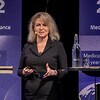
“We are Europe’s hotspot in life science”
The Medicon Valley Alliance has worked for competence development in life science in Denmark and Sweden for a quarter of a century. Anette Steenberg, CEO, sees the anniversary as a recognition of MVA’s explosive power.
-
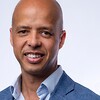
He is zooming in on topical preparations
According to Zelmic CEO David Sagna, topical products in drug development is a growing market, and to keep pace with the development, the company is awaiting approval for its new GMP facility.
-
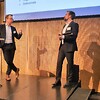
”Ett perfekt möte på hösten”
"Som vanligt är jag mest sugen på det oväntade". Så svarar Johan Rockberg, professor vid KTH, på frågan om vad han ser mest fram emot på kongressen Bioscience som han ska moderera nästa vecka.
-

“We need to build flexible operating theatres”
Flexible operating theatres, micro-sensors on surgeons to monitor their well-being and 3D images projected onto organs to be operated on. These are a few ideas that three specialist surgeons are suggesting for the operating theatre of the future.
-

“We aim to be a start-up company with an academic spirit”
Chronic pain and Alzheimer’s are two diseases that plague many people worldwide and seem impossible to cure. However, Huddinge-based company Alzecure is working on developing drugs for both conditions.
-

The TFS family is growing
TFS HealthScience is a European based CRO company with broad expertise and experiences in the biotech and pharmaceutical sector. The company is growing and the TFS family welcomes new members.
-

Biosimilars bring price pressure, but are they sufficiently used?
When biosimilars were introduced just over 16 years ago, hopes were raised that they would give many more patients access to effective but otherwise extremely expensive treatments with biological drugs. So, how well has Swedish healthcare used biosimilars? The answer partly depends on whom you ask.
-

Bought a tablet factory – and built his own empire
In 1995, Thomas Eldered was CEO of one of Pharmacia’s factories in the Stockholm area when the Swedish pharmaceutical giant, after a takeover, decided to move its production abroad. 34-year-old Thomas was facing an imminent risk of losing his job. However, instead, it actually turned out to be the starting point for one of the biggest success stories in Swedish life science.
-
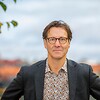
Anders Blanck about his 17 years at Lif: “The industry is enjoying greater public trust now"
The announcement came as a surprise to those around him, but according to the protagonist himself, the timing was excellent. Anders Blanck is now leaving Lif – a decision that has been growing for some time. “I have been pretty much married to my mission. However, I will turn 56 this autumn, and if I’m going to do something else in my professional life, now is the time,” he says.
-

Amorphous materials take centre stage when Orexo develops new formulations
Swift resolution but with maintained stability. Orexo’s new drug delivery platform tackles the problem of amorphous materials. “Our technology has the positive properties of the material, and it also cracks some of the problems,” says the company’s Research and Development Manager Robert Rönn.
-

Collaboration for a simpler production of gene therapies launched
A collaboration between universities and companies aims at providing better production methods for the development of gene therapies. The initiative is led by Johan Rockberg, Professor at KTH.
-
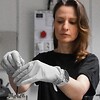
Ny metod för mikroskopi öppnar genväg till nya läkemedel
Forskare vid Chalmers har utvecklat en helt ny mikroskopiteknik för att kunna studera de minsta biologiska partiklarna i sitt naturliga tillstånd – och därmed öppna vägar för snabbare utveckling av nya läkemedel och vaccin.
-
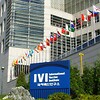
Now it’s settled: The International Vaccine Institute will be located in Stockholm
The International Vaccine Institute, IVI, is establishing itself outside South Korea for the first time. Last week, the Swedish Parliament ratified the agreement, which means that a branch of the institute will be located in Stockholm.
-

Anna Törner: To kill your darlings
Hopes were high when Anna Törner and her colleague started a study on a dietary supplement that seemed unbelievably good. “Enthusiastically, we dreamed of exciting results and perhaps a publication in a high-impact journal,” she writes in a column.
-

Hello Angelica Loskog!
Life Science Sweden would like to know more about Angelica Loskog and interviews her about her life as a researcher.
-
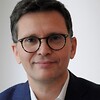
We will now publish more news in English – and offer yet another newsletter
Starting next week, Life Science Sweden will begin offering a newsletter entirely in English.
-

Miljonstöd till 14 life science-projekt för bättre hälsa
Nya tekniker för fixering av handfrakturer, AI-prediktion av blodtrycksfall och tidig detektion av bukspottkörtelcancer finns bland de 14 projekt för bättre hälsa som får miljonstöd av innovationsprogrammen Swelife och Medtech4health.
-

This is how Anette Steenberg will put Medicon Valley on the world map
Anette Steenberg has been CEO of the Swedish-Danish life science cluster Medicon Valley Alliance since 1 November last year. Life Science Sweden called her to ask about her visions and the challenges of merging the worlds of Swedish and Danish life science.
-
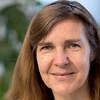
CAR-T therapies give continued hope: “Almost half of the patients have become disease-free”
become disease-free, at least of those treated with Yescarta, which are the ones I know best,” says Gunilla Enblad, Chairman of the national working group for CAR-T treatment.
-

“Together Stockholm-Uppsala and Medicon Valley can make Scandinavia a leading life science region”
“Denmark, Sweden, Norway and Finland all have national life science strategies, but the Swedish strategy is the only one explicitly emphasizing the Nordic dimension. But what if the leading life science nations, Denmark and Sweden, joined forces, took the lead and pioneered Nordic life science collaboration? Wouldn´t we then be able to "bake a bigger cake?", writes Anette Steenberg and Ulf G. Andersson in a debate article.